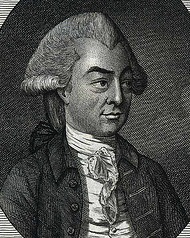Wills Hill, 1st Marquess of Downshire
|
The Most Honourable The Marquess of Downshire PC |
|
|---|---|
 |
|
| First Lord of Trade | |
|
In office 9 September 1763 – 20 July 1765 |
|
| Monarch | George III |
| Prime Minister | George Grenville |
| Preceded by | The Earl of Shelburne |
| Succeeded by | The Earl of Dartmouth |
|
In office 16 August – December 1766 |
|
| Monarch | George III |
| Prime Minister | The Earl of Chatham |
| Preceded by | The Earl of Dartmouth |
| Succeeded by | The Viscount Clare |
|
In office 20 January 1768 – 31 August 1772 |
|
| Monarch | George III |
| Prime Minister |
The Earl of Chatham The Duke of Grafton Lord North |
| Preceded by | The Viscount Clare |
| Succeeded by | The Earl of Dartmouth |
| Secretary of State for the Colonies | |
|
In office 27 February 1768 – 27 August 1772 |
|
| Monarch | George III |
| Prime Minister |
The Earl of Chatham The Duke of Grafton Lord North |
| Preceded by | New office |
| Succeeded by | The Earl of Dartmouth |
| Secretary of State for the Southern Department | |
|
In office 24 November 1779 – 27 March 1782 |
|
| Monarch | George III |
| Prime Minister | Lord North |
| Preceded by | The Viscount Weymouth |
| Succeeded by | Office abolished |
| Personal details | |
| Born |
30 May 1718 Fairford, Gloucestershire |
| Died | 7 October 1793 (aged 75) |
| Nationality | British |
| Spouse(s) | (1) Lady Margaretta FitzGerald (d. 1766) (2) Mary Stawell (1726–1780) |
Wills Hill, 1st Marquess of Downshire PC (30 May 1718 – 7 October 1793), known as the Viscount Hillsborough from 1742 to 1751 and as the Earl of Hillsborough from 1751 to 1789, was a British politician of the Georgian era.
Best known in North America as the Earl of Hillsborough, he served as Secretary of State for the Colonies from 1768 to 1772, a critical period leading toward the American War of Independence.
Born at Fairford, Gloucestershire, Wills Hill was the son of Trevor Hill, 1st Viscount Hillsborough and Mary, daughter of Anthony Rowe.
Hill, known retrospectively as Downshire, was returned to Parliament for Warwick in 1741, a seat he held until 1756. He succeeded his father as second Viscount Hillsborough in 1742 (as this was an Irish peerage he was able to continue to sit in the British House of Commons). He was the same year appointed Lord Lieutenant of County Down and Custos Rotulorum of County Down.
In 1751 he was created Earl of Hillsborough in the Peerage of Ireland. In 1754 he was made Comptroller of the Household, a post he held until 1756, and appointed a Privy Counsellor. In 1756 he was created Baron Harwich, of Harwich in the County of Essex, in the Peerage of Great Britain, which entitled him to a seat in the House of Lords.
...
Wikipedia
